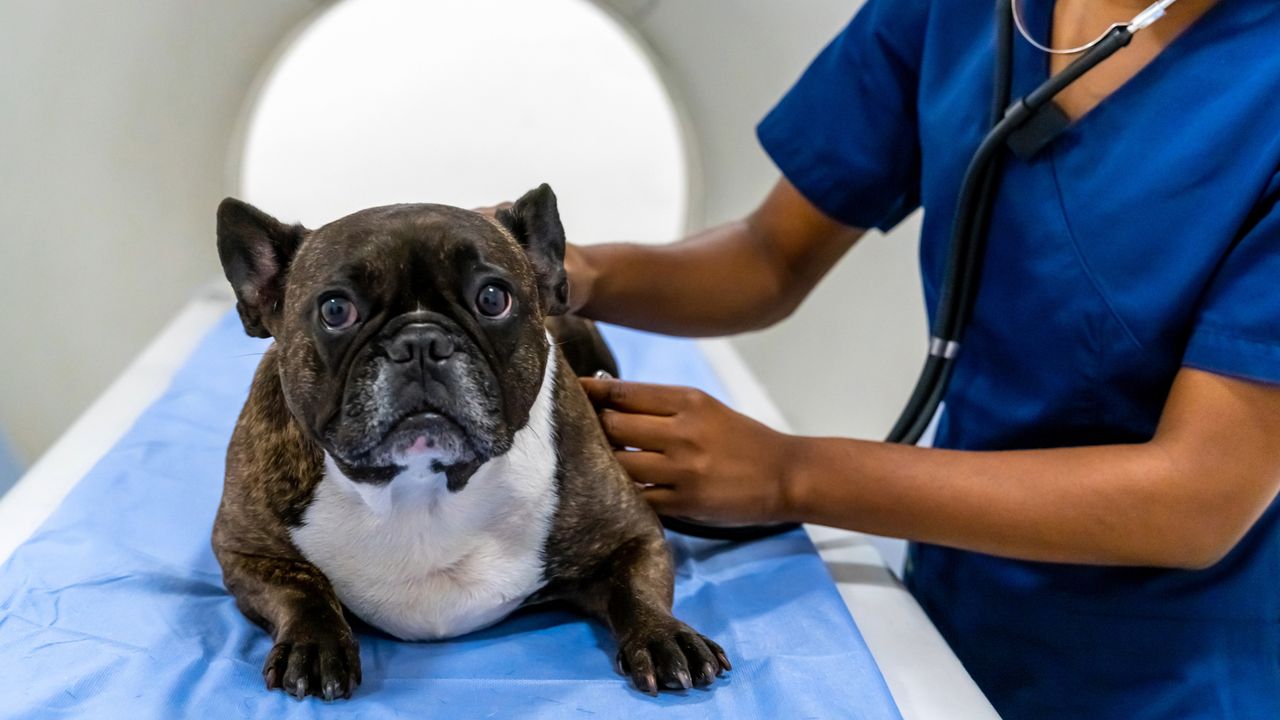
If your dog is afraid of the vet, they might show signs like barking, growling, and physical reactions, which can make check-ups and vaccinations very difficult – and might put you off taking them altogether.
To make vet visits more enjoyable for your dog, expert Dr Rebecca MacMillan says you'll want to give them plenty of praise and treats, as well as low-key interactions with staff members to slowly boost their confidence.
While working with a pet behaviorist or vet is the best way to help your dog overcome their fear, there are a few products that can help – like pheromones, supplements and pressure vests – that Dr MacMillan has recommended below.
How to keep your dog calm at the vet
1. Supplements
Supplements aren't a guaranteed quick fix, but there are lots of options available that could promote relaxation for your pooch, so it's definitely worth giving it a go. Dr MacMillan says that oral supplements can be helpful for some dogs and often contain natural ingredients like casein, L-tryptophan, and B vitamins, which have calming effects.
2. Pheromones
Dr MacMillan says: "Synthetic dog appeasing pheromones can also be useful. These replicate the pheromones released by mother dogs to calm their puppies, letting them know they are safe. These can evoke similar feelings in adult dogs too."
You can buy these as plug-in diffusers (like these ones) to place around your home, or, when visiting the vet, use an impregnated collar (like this) or a spray to spritz on your dog’s bedding, crate, and toys.
3. Pressure vests
For some dogs, pressure vests (aka Thundershirts) can have anti-anxiety effects, according to Dr MacMillan. They apply gentle pressure on your dog’s body, which can help them feel more secure in their environment.
Signs a dog is stressed at the vets
If you're wondering whether your dog is stressed by the vet, look out for these tell-tale signs of stress in dogs:
- Pacing
- Shaking
- Excessive yawning
- Nervous lip licking
- Drooling
- Body posture changes
- Face expression changes, like whale eye
- Excessive panting
- Hiding
- Fear aggression
- Toilet accidents
As mentioned earlier, if you want the best results, we recommend using these products as part of a behavioral modification programme run by a qualified behaviorist.
In some cases, where the dog is very stressed and unable to cope with visits at all, vets can prescribe medication to help manage their symptoms.
Dr. MacMillan says: "These drugs can be very effective at reducing severe anxiety, keeping your pet calm and allowing veterinary staff to do their job more effectively."
Read next: How to destress your dog and how to make vet visits less stressful
Edited by Georgia Guerin.







